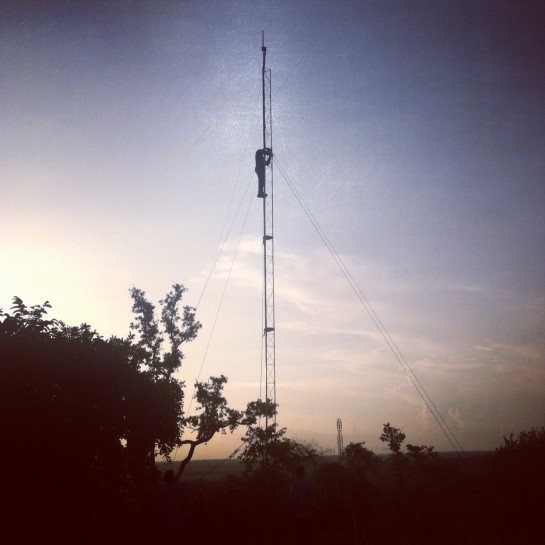
Invisible Children works with six FM radios in the LRA-affected regions to encourage LRA surrenders through “Come Home” messaging. This messaging has been proven effective. In a study done by Conciliation Resources, an international peace-building NGO, 89% of the ex-LRA interviewed cited “Come Home” radio messages as having the most influence on their decision to escape.
The Institute for War & Peace Reporting (IWPR) recently published an article about the how broadcasters in Uganda and Sudan are producing shows that persuade rebels to come home:
In 2010, Barrack Obama became the first US president to develop a comprehensive strategy aimed at ending the LRA’s 24-year reign of terror.
The strategy is designed to increase protection of civilians, neutralize Kony and his senior commanders, promote the demobilization and reintegration of LRA fighters and step up humanitarian assistance to communities affected by rebel violence.
But as efforts to disarm the LRA proceed, Paul Ronan, co-founder and advocacy director at Resolve, a United States-based group campaigning for an end to LRA violence, says both a military and non-military tactics are needed to minimize the LRA threat.
According to him, as civilians are protected and LRA commanders are apprehended, a strategy that reaches out to the LRA rank and file to lay down their weapons is also important.
“Radio programmes are one of the best methods to encourage LRA fighters and commanders to stop fighting and defect from the LRA,” he said.
Uganda’s Radio Mega FM has long been running a show, Dwog Paco (Come Back Home), on Thursday nights, calling for LRA soldiers to return to their villages and towns. The same show is aired by the state-owned Uganda Broadcasting Corporation, UBC, on Sunday nights.
Read the full article here. Super interesting, super legit.
Think people should hear about this?